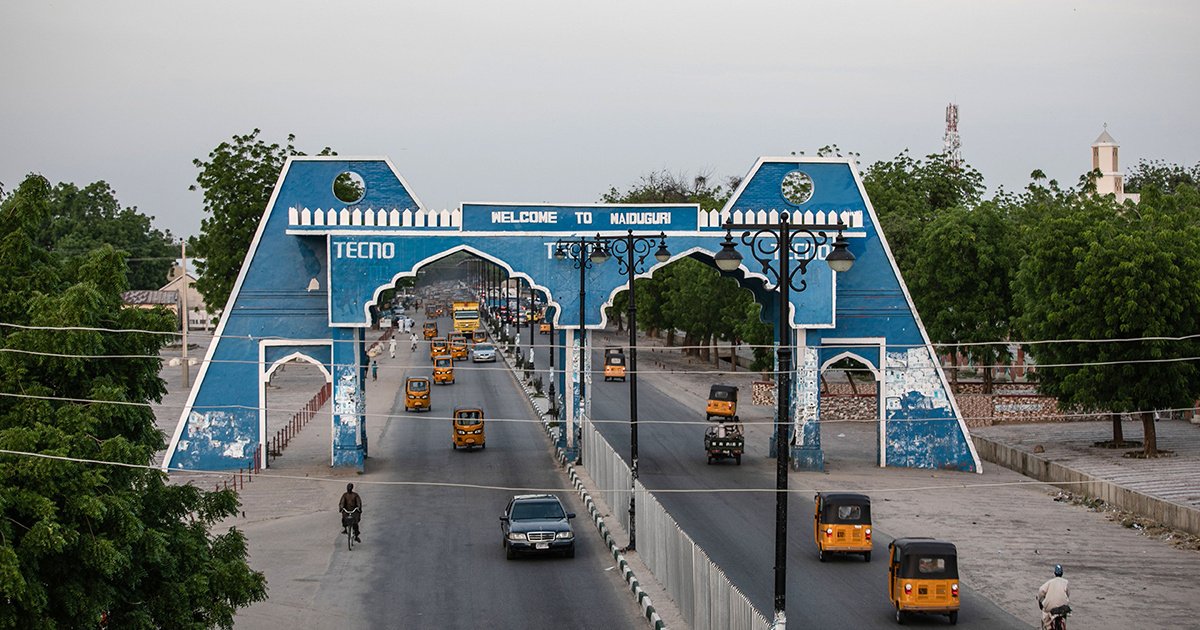President Muhammadu Buhari’s trip to Maiduguri, two weeks ago, foregrounded the people and politics of Borno State during his stay, and inspired widespread scrutiny of the survivalist tactics that have kept the state standing tall despite the ravages of terrorism. But the attention, for some of us, was neither on the hyped august visitor nor the impressive 556 capital projects rolled out as Governor Babagana Zulum’s achievement in office. It’s the uncommon bond between the governor and his former principal and predecessor, Senator Kashim Shettima. It’s an amusing Nigerian political fairytale.
Governor Zulum made the news headlines in the same period as his Kano State counterpart, Governor Abdullahi Umar Ganduje. The former for hosting the president, the latter for stepping on a poster of his predecessor, Dr. Rabiu Musa Kwankwaso at a political rally in Kano. Ganduje’s unsophisticated and mocking gesture triggered a flurry of reactions. The example from Borno, however, was the undramatic and benign recognition of some of the projects commissioned by the governor, including the conspicuous Wakilbe Memorial School and the Borno State University as completion of projects initiated by his predecessor. Such a synergistic relationship is hard to come by in our politics.
Hostile successions take two to manifest, and that’s also true in the case of Ganduje and Kwankwaso. The predecessor, who had cultivated a cult following and the intentionally named Kwankwasiyya movement, attempted to retain control of their political party structure after leaving office but his successor and former deputy had a different dream. Kwankwaso’s ambition was understood as a ploy to play a godfather and the two-captain arrangement didn’t align with Ganduje’s quest to play by a different book. The toxicity that has trailed Kano politics, with warring factions built between the Kwankwasiyya and the pro-Ganduje groups, is almost the story of every Nigerian state. It calls for a benign succession model.
At the national level, despite former President Goodluck Jonathan’s refusal to take a cue from Elder Peter Orubebe who disrupted the proceedings of the 2015 presidential elections during collation and alleged irregularities, the PDP and the APC have been at war in comparing the projects and programmes of the past and current administrations. When the Abuja-Kaduna rail project was commissioned, the PDP were quick to remind the APC that the project was executed by the Jonathan-led PDP government. This led to a cyber-riot among their supporters, and the fact that a government is designed to be a continuum was lost on both camps.
But, away from a partisan lens, the rail project was conceived by President Olusegun Obasanjo, started by President Jonathan and then completed by President Buhari. The politics of its completion stirs up some proprietary affiliation, and goes beyond the quest for credit, as though a government is a personal enterprise that pays dividends to antagonistic predecessors. Continuity doctrine is one aspect of governance that has always defied us.
In Borno, Governor Zulum is lucky to find a predecessor who is the governor’s first cheerleader and public relations officer. Not only that. He’s also withdrawn from the spotlight to let him bask in his sunshine.
The self-seeking culture of demanding one’s successor to remain in one’s shadow has undone so many leaders who came with a sincere plan to build on their successor’s legacy. Understandably, Shettima’s relationship with Zulum defies the Nigerian logic; for handpicking the successor in an ocean of odd-favoured hopefuls without strutting to play a godfather.
Shettima’s speech on September 30, 2018, when he was torn in the dilemma of endorsing a successor ahead of the 2019 elections, contextualized his intent more accurately. He began with an emphasis on his lack of capability to give power and that he could “only make a recommendation based on my own human but informed analysis,” before he underlined the tough choices before him that say.
“Of our 21 aspirants, if I were to support and handpick what some people might call any of my closest boys as successor, I most certainly would go for Barrister Kaka Shehu Lawan or Adamu Lawan Zaufanjimba,” he said. “If, on the other hand, public service is the only consideration, none of the aspirants can be more qualified than our elder statesman, Ambassador Baba Ahmed Jidda.” He took his time to introduce the world to a list of potential successors and their background, and even revealed that “two of the aspirants, Mustapha Fannarambe and Umar Alkali are my relatives.”
“(T)he aspirant with an edge in understanding the peace-development nexus of Borno’s post-conflict future is Professor Babagana Umara Zulum, mni,” he said. “As Commissioner for Reconstruction, Rehabilitation and Resettlement since September 2015, Professor Zulum has been in the thick of our recovery and restoration efforts. He has proved to understand the dynamics. He has established enormous amount of contact in the post-conflict development sector and has earned the confidence of local and international stakeholders. Borno needs such confidence in the task of completing our ongoing social and economic recovery, rebuilding of communities and livelihoods.”
About a year and a half after Zulum took over, while discussing the place of mentorship in public service, he still told a coalition of youth groups in Birnin Kebbi that the successor “is better than me in all ramifications”. The weighty statement in Birnin Kebbi echoed his sentiment in the pre-election endorsement speech that “At 48, Professor Zulum is in his prime, he is head and shoulders above me in terms of intellect, capacity and indefatigability. Zulum is without the slightest doubt, a workhorse!”
Such faith and tribute to one’s official inferior is unusual, especially among the glory-seeking political class and in a political system bound by tragic herd mentality. The Shettima-style succession model, characterized by putting the people’s interests before one’s personal inclinations, is a wisdom that’s produced one of Nigeria’s most outstanding governors today. It would’ve also failed if he had not functioned as a cheerleader and defender of the successor.
The alternative would’ve been a pathway to anarchy, and that’s the last thing a state at such a crossroads needs. So many working hours would’ve been wasted in such maddening distractions. More than having a political system that works, we need intransigent leaders, successors allowed to demonstrate their best outside the opulent chambers of demanding godfathers. Shettima’s example is one glorious lesson in political succession from which, in view, many a would-be godfather has a lot to learn.

 Join Daily Trust WhatsApp Community For Quick Access To News and Happenings Around You.
Join Daily Trust WhatsApp Community For Quick Access To News and Happenings Around You.


